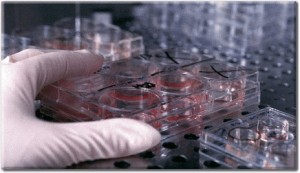Mini-Kidney Likely Grown from Embryonic Stem Cells, Not Skin Cells
 Ever since the dawn of embryonic stem cell research, the media has rarely gotten the facts straight. Either the reporter is unaware of the scientific and moral differences between adult and embryonic stem cells or he has an agenda to push. Some news outlets were so bold as to call embryonic stem cells “early” stem cells to make sure their readers were kept in the dark about where exactly “early” stem cells originate.
Ever since the dawn of embryonic stem cell research, the media has rarely gotten the facts straight. Either the reporter is unaware of the scientific and moral differences between adult and embryonic stem cells or he has an agenda to push. Some news outlets were so bold as to call embryonic stem cells “early” stem cells to make sure their readers were kept in the dark about where exactly “early” stem cells originate.
A recent breakthrough in stem cell science was reported as starting with skin cells when it looks to have actually used human embryonic stem cells.
A couple of weeks ago it was widely reported that scientists in Australia were able to grow a mini-kidney from stem cells. Many news outlets stated that the researchers began with skin cells. Reports hinted that the researchers used induced pluripotent stem cell (iPSC) technology to reprogram the skin cell to an embryonic-like state and then coaxed those iPSCs into self-organizing kidney cells. Here is an excerpt from The Telegraph:
The breakthrough, published in the journal Nature Cell Biology, followed years of research and involved the transformation of human skin cells into an organoid – a functioning “mini-kidney” with a width of only a few millimetres.
And one from the Sydney Morning Herald:
A mini-kidney has been grown in an Australian laboratory from what were originally skin cells, boosting hopes for the future treatment of kidney disease.
The study adds support to a science-fiction-like goal of taking skin cells from a patient, using them to grow a kidney and then implanting it into the same patient, circumventing problems with transplant rejection….
The team manipulated skin cells that had been effectively turned into embryonic stem cells so that they began to “self-organise”, arranging themselves into complex structures.
It was the mention of “embryonic” stem cells in that last line that had me scratching my head. If this was an induced pluripotent stem cell advance, why weren’t the stem cells described as “embryonic-like” instead?
I then found this transcript from an ABC News report that says these kidneys were grown from embryonic stem cells not skin cells:
SAMANTHAH DONOVAN: The research team was led by Professor Melissa Little from the University of Queensland and also involved scientists from the Murdoch Children’s Research Institute and Monash University.
Professor Little’s UQ colleague, Brandon Wainwright, says the team has managed to turn an embryonic stem cell into a functioning component of the kidney.
BRANDON WAINWRIGHT: Melissa for many years has been following the natural genetic signals that occur early in embryonic development that lead to the formation of the kidney.
So they took a human embryonic stem cell and put it in a dish and then tried to teach it – based on their knowledge of many years of discovery – that they tried to teach it to become a kidney. And it seems like they succeeded.
The abstract for the paper titled “Directing human embryonic stem cell differentiation towards a renal lineage generates a self-organizing kidney,” also says that embryonic stem cells were used:
In this study, we have successfully directed the differentiation of human embryonic stem cells (hESCs) through posterior primitive streak and IM under fully chemically defined monolayer culture conditions using growth factors used during normal embryogenesis.
So it seems some news outlets mislead us. I doubt this was a deliberate attempt to confuse the public. This may be a genuine case of confusion about the differences between ESCs and iPSCs on the part of the media.
Nonetheless, it is becoming more and more difficult to piece together what research is ethical and which is not just from mainstream media reports.
We pro-lifers are going to have to get biotech savvy and search out original sources to be sure.

